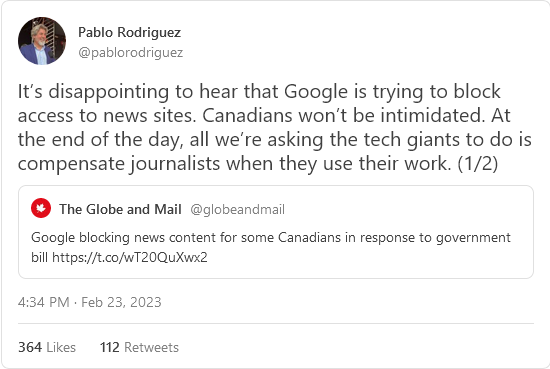As a long-time collector of quotations, I almost had to take to my fainting couch when it became clear that President Lincoln never said anything about the internet being a tissue of lies. My original quotations collection (webbed here, but no longer actively maintained) was not particularly well-policed in the sense of ensuring that the quotations were both accurate and properly attributed. This is because I began collecting them before the internet was a thing for most people. When I began the blog, I tried to ensure that anything I quoted could at least be traced back to the site I found it on (which isn’t a particularly rigorous chain of evidence, but at the least it ensured I couldn’t be accused of making shit up).
In James Delingpole’s article on this topic, I was sorry to find that the very first fake quote he listed is indeed one that I had included in my original collection:
Only the dead have seen the end of war – Plato
I became aware of this marvellous quotation – so wise, pithy and dark – on one of my frequent trips to the Imperial War Museum. It’s one of a series inscribed on the wall beside the ramp leading down to the World War I/trench section. Another of my favourites is attributed to Thucydides: “There were great numbers of young men who had never been in a war and were consequently far from unwilling to join in this one.”
The Plato quote is so good it has been used many times since, inter alia by General Douglas MacArthur in a speech at West Point in 1962, as an aphorism apparently oft-cited by grunts in the ‘Nam, and by Ridley Scott in Black Hawk Down. But the quote is fake. Or at least its attribution is.
In fact it derives not from the Classical Age but from the early 20th century. It was invented by the Madrid-born philosopher, poet and later Harvard professor George Santayana. He clearly had a gift for this sort of thing for he also coined another of those phrases which you’ve always thought was devised by someone much more famous: “Those who cannot remember the past are condemned to repeat it.” Usually this is attributed, in various forms, to Edmund Burke or Winston Churchill. But the former didn’t say it and the latter – as I suspect he quite often did – plagiarised it.
Fake quotes, whether genuine sayings that have been misattributed or fabrications which have been lent authenticity by putting them in the mouths of someone famous, have been a bugbear of mine for a while. I can probably date this to the time someone called me out on my favourite George Orwell quote: “In times of universal deceit, truth-telling becomes a revolutionary act”.
Annoyingly, I had used it a good half dozen times in articles and in internet chats before I learned that Orwell had never said it. I felt cheated and also foolish: surely as an English literature graduate I ought to have known such a thing, in the way that film buffs know that Ingrid Bergman never said “Play it again, Sam”.
But these are easy mistakes to make now that fake quotes are everywhere. Probably, this has always been the case but they have definitely proliferated with the advent of the internet, the shortening of attention spans (which make us more susceptible to gnomic verities that appear to sum everything up and obviate the need for further thought) and the corresponding appetite for meme-friendly aphorisms.
Many of these fake quotes, I’ve noticed, are printed over photographs or images of the alleged author. It’s a cheap trick but an effective one. No one ever is going to be fooled by a joke quote like: “Don’t believe everything you read on the internet. Abraham Lincoln, 1865.” But shove it on top of a picture of the 16th president with those familiar features – the wart, the chin beard, the lined skin and sunken eyes – and for a fraction of a second, the subconscious is taken in.
He finishes off the article thusly:
I’m reminded here, somewhat, of the introductory talk that Mark Crispin Miller used to give his students when he was still allowed by New York University to conduct his course on Propaganda. I paraphrase – you really should listen to this podcast interview for the full account – but essentially Miller warned his audience: “Be prepared to be very upset. You may be shocked to discover how many of the ideas you imagined to be your own are in fact the result of propaganda.”
It would definitely have come as a shock to the younger me. When you’ve had what you consider to be a superb education, steeped in classical literature, you tend to kid yourself that you are just too damn clever, too well-read, to fall for the kind of cheap confidence tricks that fool the unwashed masses.
Which, when you think about it, is what makes the faking of those classical quotes so cunning. They deviously exploit one of one of the cultural assumptions most deeply embedded in both the “educated” and “uneducated” classes alike: this idea that if one of the Ancient Greeks or Romans said it, it must be true because there’s almost nothing about the world that they didn’t know. Another thing they exploit is that the “educated” are rarely as clever as we pretend to be. For example, presented with a vaguely plausible quote with a fancy classical name attached, passing few of us are going to go: “Hang on a second. Did he really say that? Let me check …” Instead, we’ll go “Ah. The great Thucydides. He was the Greek general who wrote Anabasis. The sea! The sea!” and congratulate ourselves on what marvellously well-informed people we are.
Did you catch that palmed card there? Thucydides didn’t write Anabasis because he was far too busy writing the Commentarii de Bello Gallico!






